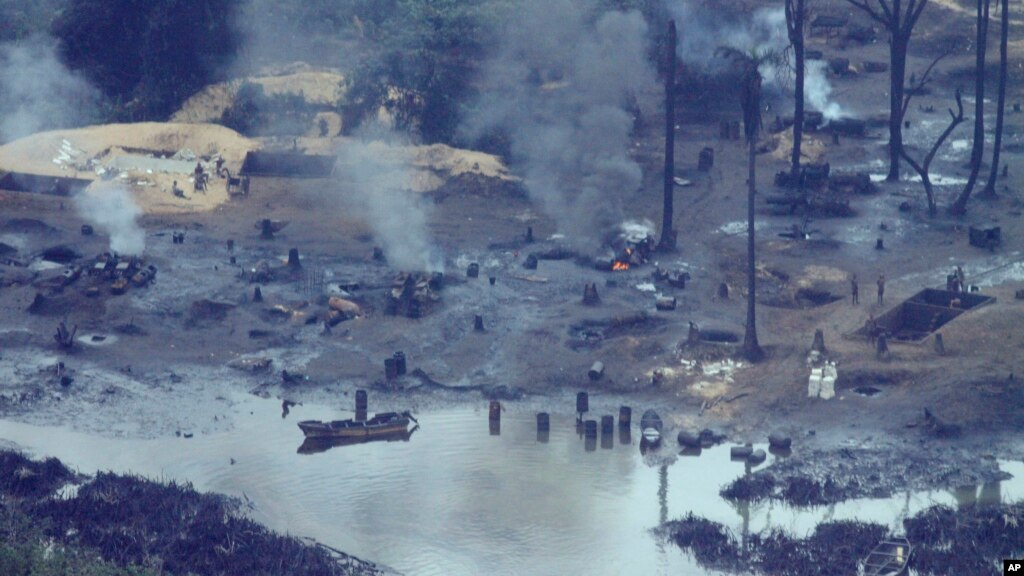
Villagers in the Niger River Delta area of Nigeria say they live in unclean conditions because oil companies have not cleaned up spills.
The claims against Shell Oil Company and Italian Oil’s ENI were published in a report earlier this year by Amnesty International, a rights group.
Shell blames the pollution on oil theft and illegal refining. Shell and ENI admitted to more than 550 oil spills in the Niger Delta last year.
Documents released in a legal action in Britain showed Shell knew of pipeline problems in Nigeria. The documents said the company knew one of its main pipelines was old and dangerous.
Four spill sites in Nigeria remain polluted. Shell claimed the sites were cleaned in 2011.
Five pipelines meet at one of the sites, called the Bomu manifold. It is near the village of Kegbara Dere and is called Nigeria’s “oil central.” The pipelines carry 150,000 barrels of oil a day to an export terminal.
Rusty pumps and 50-year-old pipes increase the chance for spills. Over the past five years, the Bomu manifold site continues to be contaminated.
Shell operates almost 50 oil fields in the Niger delta. The company also owns 5,000 kilometers of pipeline. Shell’s own investigation reported 1,693 oil spills and 350,000 lost barrels of oil in the area.
I’m Christopher Jones-Cruise.
Jim Dresbach wrote this story for Learning English, using information from Amnesty.org and TheGuardian.com. Kathleen Struck was the editor.
We want to hear from you. Write to us in the Comments Section, or visit our Facebook page.
Words in This Story
delta – n. a piece of land shaped like a triangle that is formed when a river splits into smaller rivers before it flows into an ocean
theft – n. the act or crime of stealing
manifold – n. a device that diverts oil or gas, without flow interruption, from the well for disposal
terminal – n. a central area to which oil is moved for distribution
rusty – adj. covered with rust, a reddish substance that forms on iron or other metals, usually when it comes in contact with moisture or air
